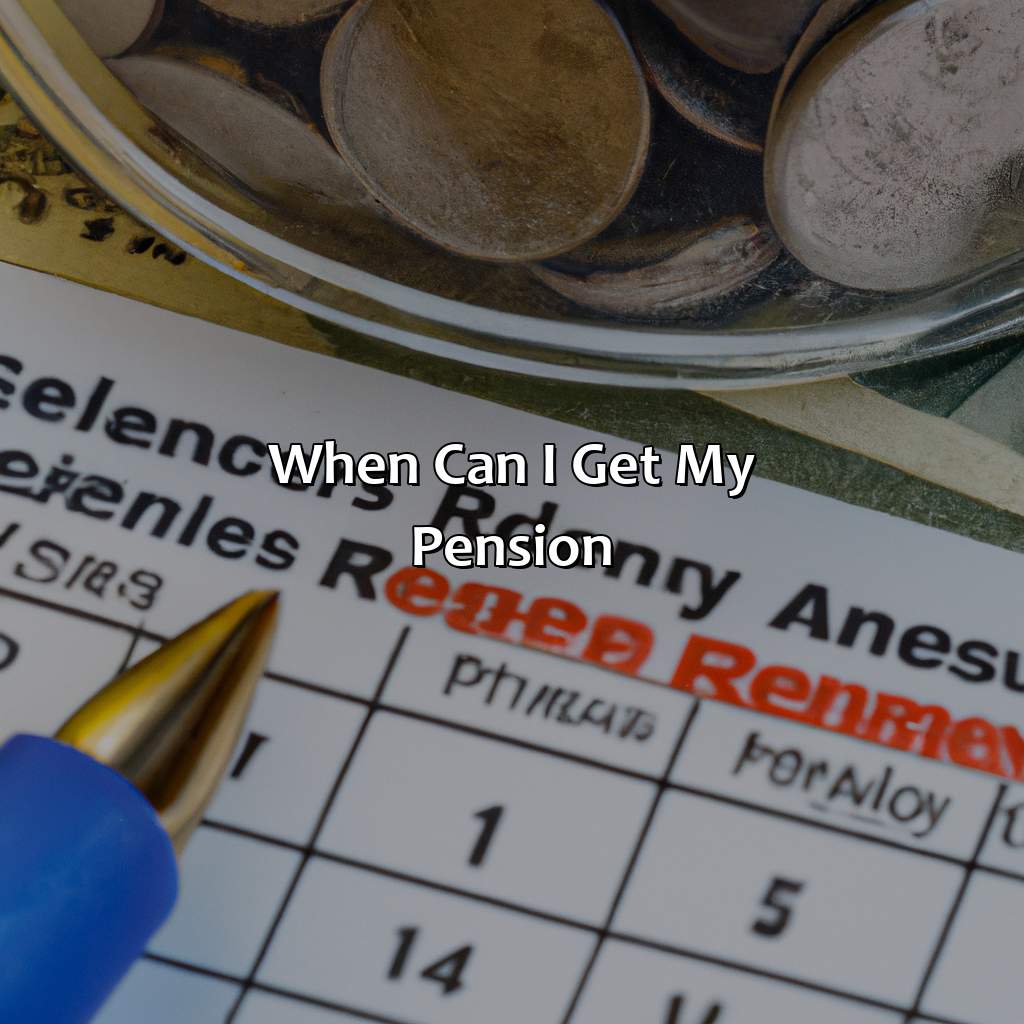When Can I Get My Pension?
Key Takeaway:
- Eligibility for pension: Individuals who have worked in a job that offers a pension plan may be eligible for pension benefits once they have met the plan’s criteria for vesting.
- Age requirements: The age at which an individual can start receiving pension benefits varies depending on the plan. Some plans offer early retirement benefits as early as age 55, while others require the individual to reach normal retirement age, typically between ages 60 and 65.
- Pension plan allocation options: Individuals who are eligible to receive pension benefits may have the option to receive either a lump sum payment or an annuity payment.
- Pension benefit application process: To start receiving pension benefits, individuals must complete the application process, which may involve submitting documentation and choosing a payment option.
- Social Security benefits coordination: If an individual is eligible for both pension benefits and Social Security benefits, there may be coordination between the two programs to ensure the individual receives the maximum benefit possible.
- Pension benefit payments: Pension benefits may be paid out in different ways, including monthly, annually, or as a lump sum. The payment amount may also vary depending on the payment option chosen.
- Pension benefit taxes: Pension benefits may be subject to federal and state income taxes, and some plans may also withhold taxes from the payment amount.
- Pension benefits after death: Some pension plans may offer survivor benefits to the individual’s spouse or other beneficiaries after the individual’s death.
- Pension plan changes and updates: Pension plans may change over time, and it is important for individuals to stay informed about any updates or changes that may affect their benefits.
Are you worried about when you can get access to your pension? You don’t need to worry anymore! This blog provides clarity on when and how you can receive your pension income. With the right information, you can start planning for your retirement.
Eligibility for Pension
Qualifying for Retirement Benefits:
To be eligible for retirement benefits, you must meet specific criteria set forth by your pension plan. These criteria usually include reaching a certain age, such as 65, and accumulating a minimum number of years of service. The precise details vary depending on your particular plan and situation.
If you’re wondering how to find your pension information, it’s best to check with your employer or pension provider for specific details on your plan and eligibility.
Meeting the Standards:
Typically, if you have fulfilled the age and service requirements, you will become eligible to receive your pension. It is crucial to review your pension plan s rules and regulations to verify that you meet all criteria to qualify for benefits. Your HR department may be able to provide information if you have questions or concerns about when the state pension increases.
Additional Considerations:
Additional factors may impact your retirement eligibility, such as previous layoffs or employment gaps. Reviewing your pension plan documentation and policy handbook can help ensure that you have a clear understanding and meet all of the eligibility standards.
Don’t Miss Out:
Do not miss out on the opportunity to start receiving your pension benefits. It is critical to understand the eligibility requirements and begin the process of enrolling in the plan as soon as possible. Waiting too long to apply can result in lost benefits, so take action now to secure your financial future.

Image credits: retiregenz.com by Yuval Washington
Age Requirements
To figure out when you can get your pension, it’s important to comprehend the age rules. You’ve got two sub-sections: Early Retirement Benefits and Normal Retirement Benefits. You may qualify for Early Retirement Benefits at a younger age. However, Normal Retirement Benefits usually require you to meet the typical age criteria.
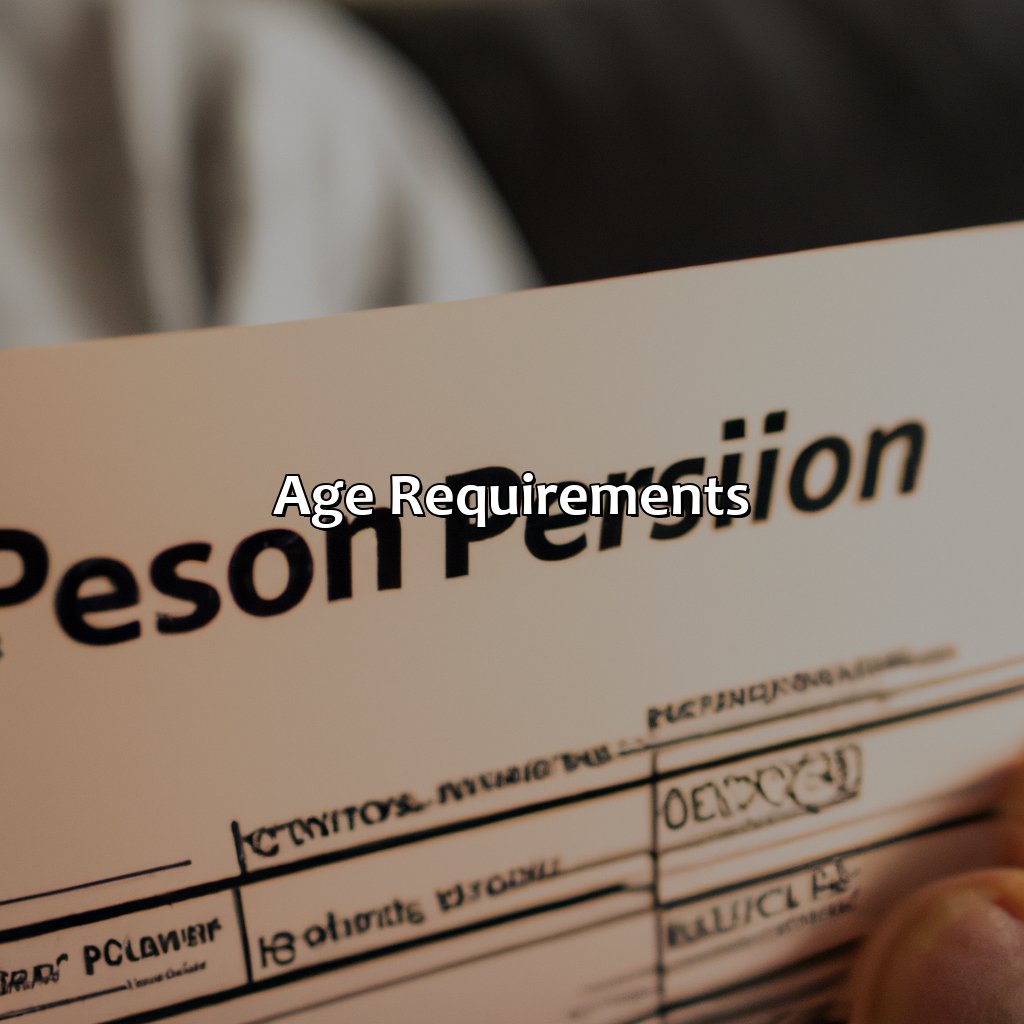
Image credits: retiregenz.com by Harry Jones
Early Retirement Benefits
For those who wish to retire early and enjoy the benefits of pension, there are several options available. We have compiled some information for you regarding retiring early and receiving benefits:
- Early retirement age is 62 years, with reduced pension payments.
- If you have worked for at least ten years, you may be eligible to receive Social Security payments as early as age 62.
- You can plan to push your retirement to a later date to receive higher pension amounts.
- Retiring at age 67 can give a full amount of social security benefits.
There are other factors that one must consider when planning for their retirement. Investing in stocks or real estate can aid in building savings and generating passive income. Additionally, some people choose to work part-time during retirement age for extra income.
It’s important to plan ahead when thinking of early retirement. Consider budgeting carefully and making sure that you have enough money set aside to sustain yourself during your golden years. Researching the various programs available through social security and discussing options with trusted financial advisors can help you make informed decisions about how many years you should pay SSS contribution to get pension and retirement planning.
You know you’re officially old when getting excited about your pension benefits becomes a valid conversation topic with your friends.
Normal Retirement Benefits
Retirement Age Eligibility
To receive normal retirement benefits, an individual must meet specific age requirements. These requirements vary depending on the country and government policies. Generally, an employee can check their eligibility to receive their pension benefits by knowing how to check their pension age.
The minimum age for receiving retirement benefits varies depending on a variety of factors such as employment status, sector of employment, and national laws. Age-related rules for pension distributions can require employees to accumulate a specified number of years in service before becoming eligible to receive their rightful pension benefits. If you’re wondering how to claim your civil service pension, RetireGenz has some helpful resources and information for you.
It’s crucial to learn about these rules and regulations to ensure proper preparation for retirement planning as mistakes can significantly impact future financial circumstances.
Experts recommend seeking professional advice near your latter career stage regarding strategic retirements plans that may include alternative income sources or conservative budgeting. This advice provides one with valuable information on how best to prepare oneself financially for impending post-work years.
Choose wisely: your pension plan allocation options could mean the difference between sipping Mai Tais on a beach or working at Walmart until you’re 90.
Pension Plan Allocation Options
We have two sections to help manage your pension plan allocations with lump sum and annuity options in mind.
The lump sum option is a one-time payment from your pension scheme.
Annuity option offers regular payments from insurance providers.
Explore these choices to make educated decisions that match your retirement ambitions.
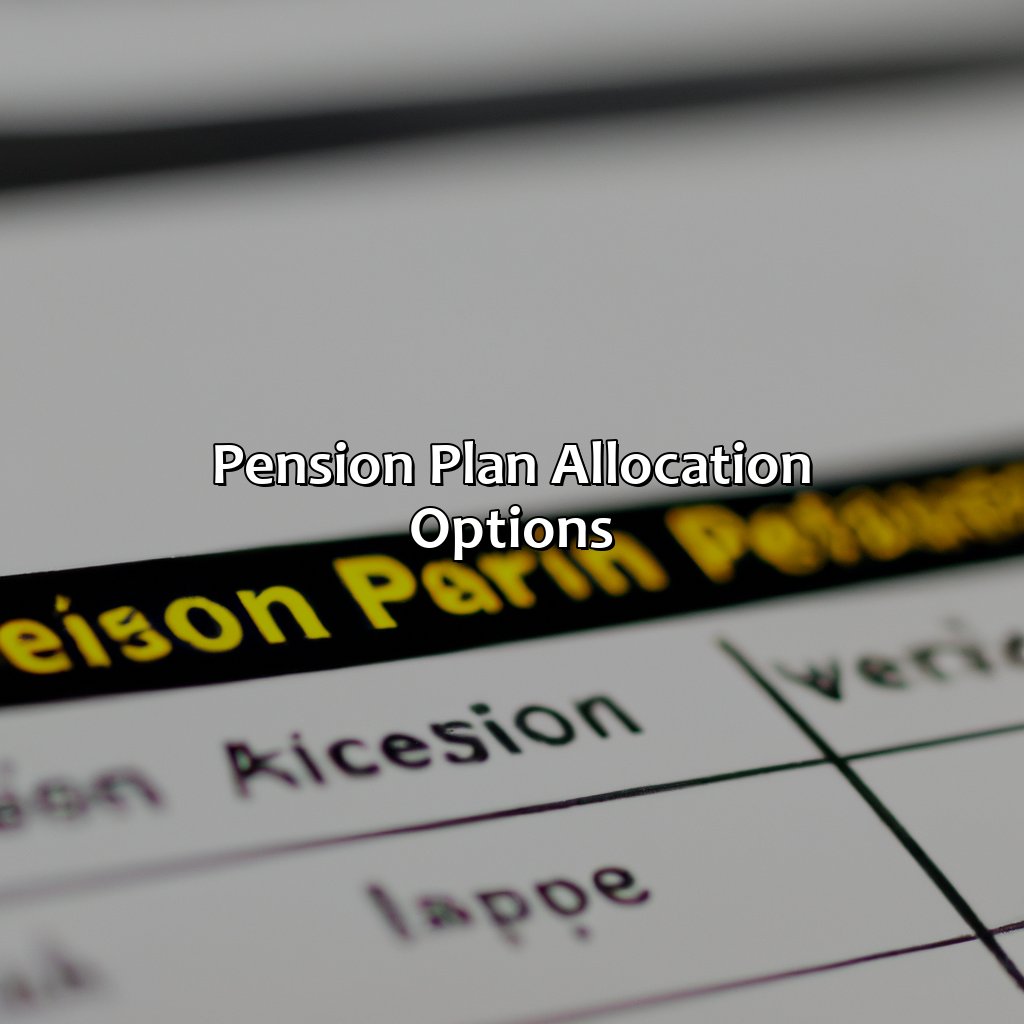
Image credits: retiregenz.com by David Duncun
Lump Sum Option
One of the options for pension plan allocation is a one-time payment of funds, commonly known as the ‘Complete Amount’ option. This allows individuals to receive all pension benefits at once instead of receiving periodic payments over time.
If you choose the Complete Amount option, you will receive your pension in a lump sum payout, which can be utilized to cover any expenses or invest further. However, it’s important to consider tax implications that come with this choice as the Complete Amount may result in a higher tax bill.
It’s worth considering your financial goals and stability before choosing the Lump Sum Option. It might be better to receive periodic payments if you plan on remaining long-term income-wise. If you are wondering how much SSS pension you will get, you should know that if you elect a complete repayment, you could end up running out of funds later in life.
In case you decide on selecting lump-sum payment; ensure to set aside the maximum amount required for taxes and explorations applications for social security or other entitlement programs. To get an idea of how much tax would apply towards your lump sum amount added to your regular income level, consult with an experienced financial planner or tax professional in advance.
Get ready to exchange your daily grind for a daily annuity check, because retirement just got real.
Annuity Option
An Annuity is a popular option for pension plan allocation. It involves the insurer making regular payments to the retiree according to an agreed schedule. The size and frequency of payments depend on various factors such as the retiree’s age, gender, and investment interest rates.
The Annuity variation provides guaranteed retirement income for a pre-determined period or life, while also offering a survivor option that permits beneficiaries access to the balance upon death. An annuity with joint benefits can support both the retiree and his/her partner if they outlive each other.
Suppose you opt for an annuity pension plan allocation. In that case, you should keep in mind certain facts about annuities – understand payout options available during the lifetime versus beneficiary protection benefits, how taxation applies to your chosen payment method or cash surrender value (CSV), which impacts if lump sum payments are possible for emergencies during your retirement term.
It’s prudent to consult a professional before making significant financial decisions regarding your retirement allocations since different types offer varying benefits depending on personal circumstances such as health status, life expectancy or spousal considerations.
Applying for pension benefits is like filling out an adult coloring book – it’s tedious and you’re never sure if you’re doing it right.
Pension Benefit Application Process
Inquire about the timeline for receiving your pension benefits. The application process for pension benefits can vary depending on your employer, retirement plan and age. It is important to understand the eligibility criteria and start the application process accordingly. During the process, you may need to provide certain documents such as proof of identification, proof of age, and employment records. The process can take several months, therefore it is important to start early.
It is also important to note that the type of pension plan you have can affect your benefits. A defined benefit plan guarantees a specific amount of money upon retirement, whereas a defined contribution plan is dependent on the contributions and investment returns.
Pro Tip: Keep copies of all the documents submitted for the application process.
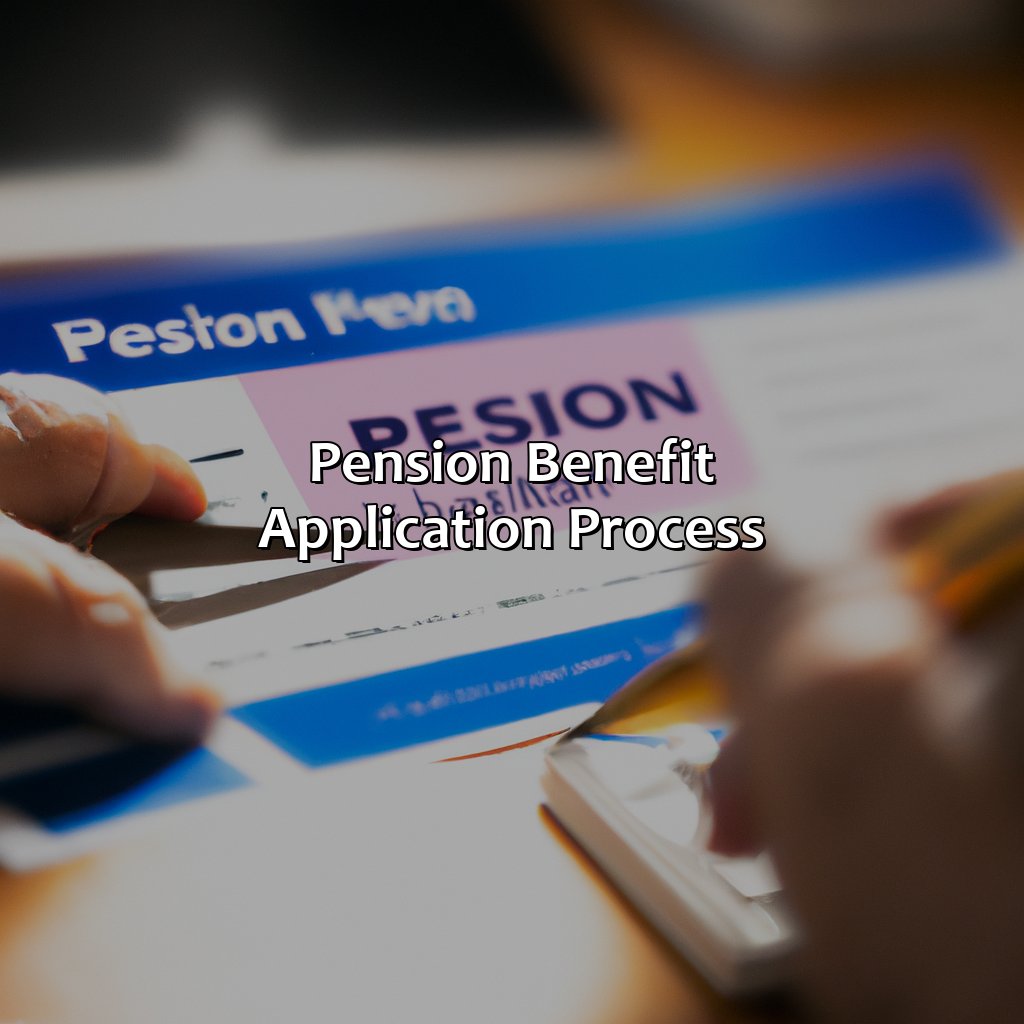
Image credits: retiregenz.com by Adam Duncun
Social Security Benefits Coordination
Social Security benefits coordination refers to the process of managing multiple benefits that an individual may be eligible for, such as retirement, disability, survivor, or spousal benefits. The coordination ensures that the individual receives the maximum benefits possible without exceeding the set limit.
It is important to note that some benefits may affect others, for instance, working while receiving Social Security benefits, or receiving benefits from a government pension plan. It is crucial to understand how these scenarios may impact your benefits to avoid surprises and potential penalties. If you are wondering when to apply for old age pension, it’s important to do your research and plan accordingly.
To ensure coordination, you must provide accurate information to Social Security. Also, it is advised to keep track of your earnings and benefits regularly and report any changes immediately. This will help prevent overpayments that may lead to having to pay them back at a later time.

Image credits: retiregenz.com by James Duncun
Pension Benefit Payments
Inquiries about the date of eligibility for receiving one’s pension can be answered by assessing one’s age, the type of pension fund and retirement plans that he or she has acquired. The date of receiving pension benefits is dependent upon an individual’s retirement plan and the terms it offers. It is recommended that everyone review their pension plans regularly to ensure their future financial well-being. Understanding one’s pension benefits can assist in making informed decisions about one’s retirement options without any confusion or stress.
An essential factor in determining the date of receiving pension benefits is an individual’s age. The age of the person, as stated in their retirement plan, dictates when they are eligible to receive pension benefits. Another determining factor for receiving pension benefits is whether the individual qualifies for a guaranteed income or a life annuity pension plan. Pension payments can also be affected by an individual’s income and marital status. If you’re wondering when you’ll receive your state pension, it’s best to consult with a retirement advisor.
One thing crucial for every individual to understand is that the pension benefit payment calculation is dependent on several variables. It is critical to review their particular pension plan to learn its details and conditions. Knowing one’s eligibility for pension benefits will aid in better retirement planning and a more secure financial future. If you’re wondering how to find out your pension, make sure to review your specific plan’s rules and regulations.
According to a recent study by Vanguard, people who received professional personalized help with financial planning, including retirement plans, were two times more likely to be on the right track than those who did not.
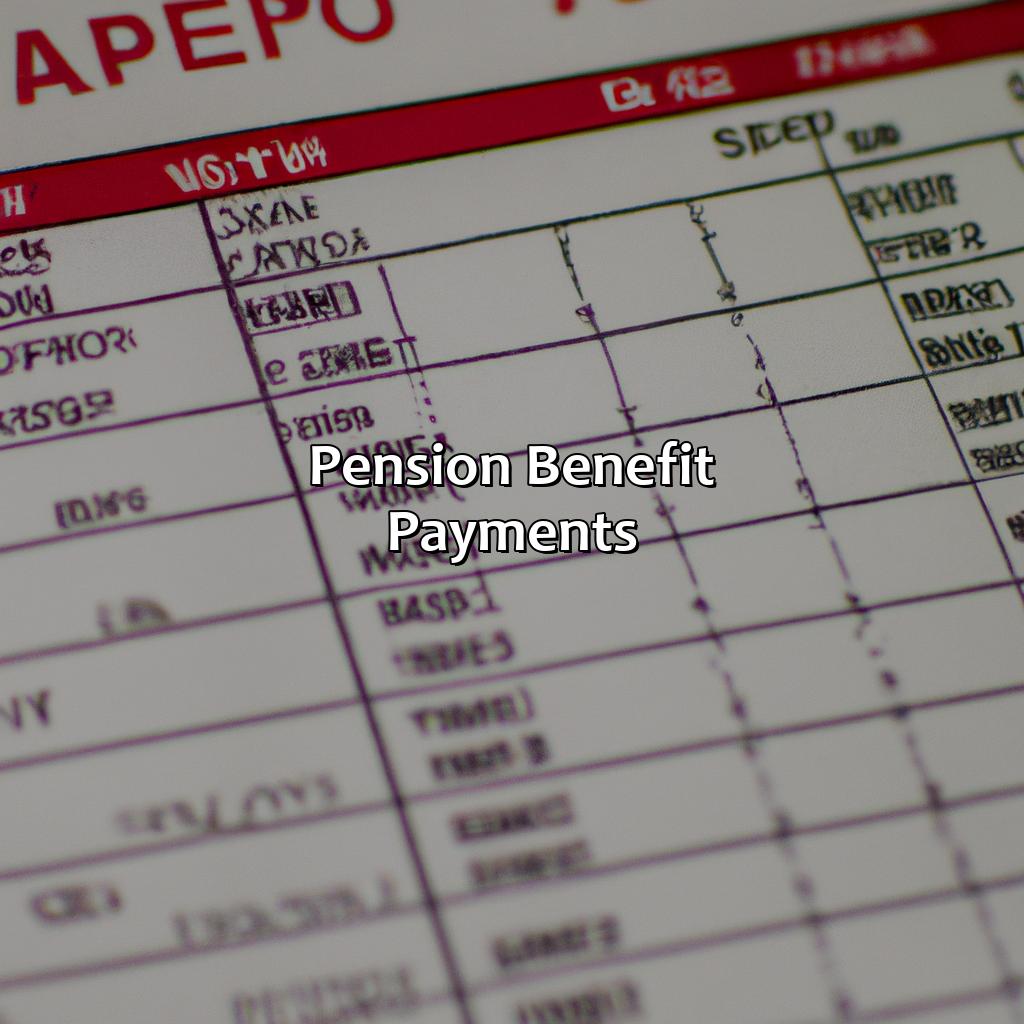
Image credits: retiregenz.com by Yuval Duncun
Pension Benefit Taxes
Pension Benefit Taxes – Understanding the Tax Implications of Your Retirement Income
Retirement benefits, including pensions, are subject to taxation. Contributions made by you, your employer, and the growth of your pension fund, are taxed differently. Your pension may also be subject to state and federal income taxes, depending on where you live and your income level.
When you start receiving your pension benefits, you may have the option to choose how you receive them, as a lump sum or regular payments. The tax treatment of your pension income will depend on the option you choose. Your pension provider will usually withhold taxes from your payments, but you should check to make sure they are taking the correct amount.
In addition to federal and state income taxes, some pensions may also be subject to estate taxes and inheritance taxes, depending on your circumstances. It is important to plan for these tax liabilities as part of your retirement planning.
To minimize your tax liability, you may consider spreading out your pension payments over time, so that each payment is taxed at a lower rate. You can also consider contributing to a tax-deferred account like an Individual Retirement Account (IRA) to reduce your taxable income and increase your retirement savings.
In summary, understanding the tax implications of your pension income is important for effective retirement planning. Consult with a financial advisor or tax specialist to navigate the complex tax rules and optimize your retirement income.
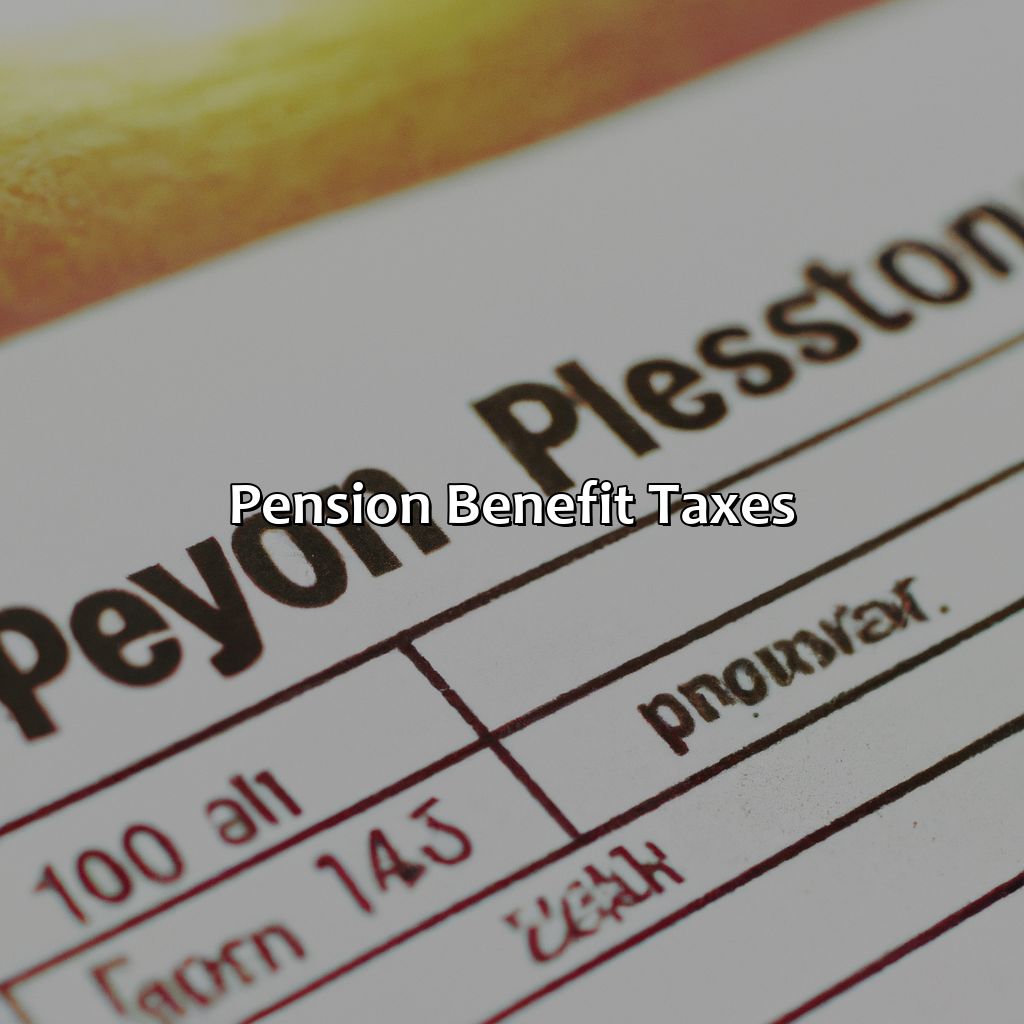
Image credits: retiregenz.com by Harry Jones
Pension Benefits After Death
Explaining Pension Benefits after the Death of a Pensioner:
The pension benefits that a beneficiary receives upon the death of a pensioner.
5 Points of Pension Benefits After Death:
- Survivor s pension payment
- Eligibility criteria for survivor s pension
- Rules on division of survivor s pension among multiple beneficiaries
- Taxation on survivor s pension payment
- Survivor s pension payment duration
Unique Details:
It is important to note that the amount of survivor s pension payment is significantly lower than the pensioner’s regular pension payment. Additionally, not all retirement plans offer a survivor s pension payment. Thus, it is wise to check with the retirement plan administrator to determine if the plan offers the benefit.
Pro Tip:
Ensure that your retirement plan beneficiary designation is current to ensure that your survivors receive the proper benefits.

Image credits: retiregenz.com by Harry Jones
Pension Plan Changes and Updates.
As per recent developments in pension plans, many individuals wonder about the timeline for receiving their pension. With changing regulations and updates on government policies, it is important to stay up-to-date with the latest information.
This includes understanding the eligibility criteria for receiving your pension, keeping track of the required contributions, and monitoring any changes to the retirement age. By staying informed, you can ensure that you are able to make informed decisions about how long your pension will last and your retirement planning.
In addition to these key factors, it is also important to be aware of any updates to the pension plan that may impact your eligibility or payout amount. This may include changes to government regulations or alterations to the plan’s investment strategy.
To avoid missing out on important information and maximizing your retirement benefits, it is crucial to remain vigilant and stay informed about any pension plan changes and updates. Don’t hesitate to reach out to your pension provider with any questions or concerns – they are there to assist you in making the most of your retirement planning.
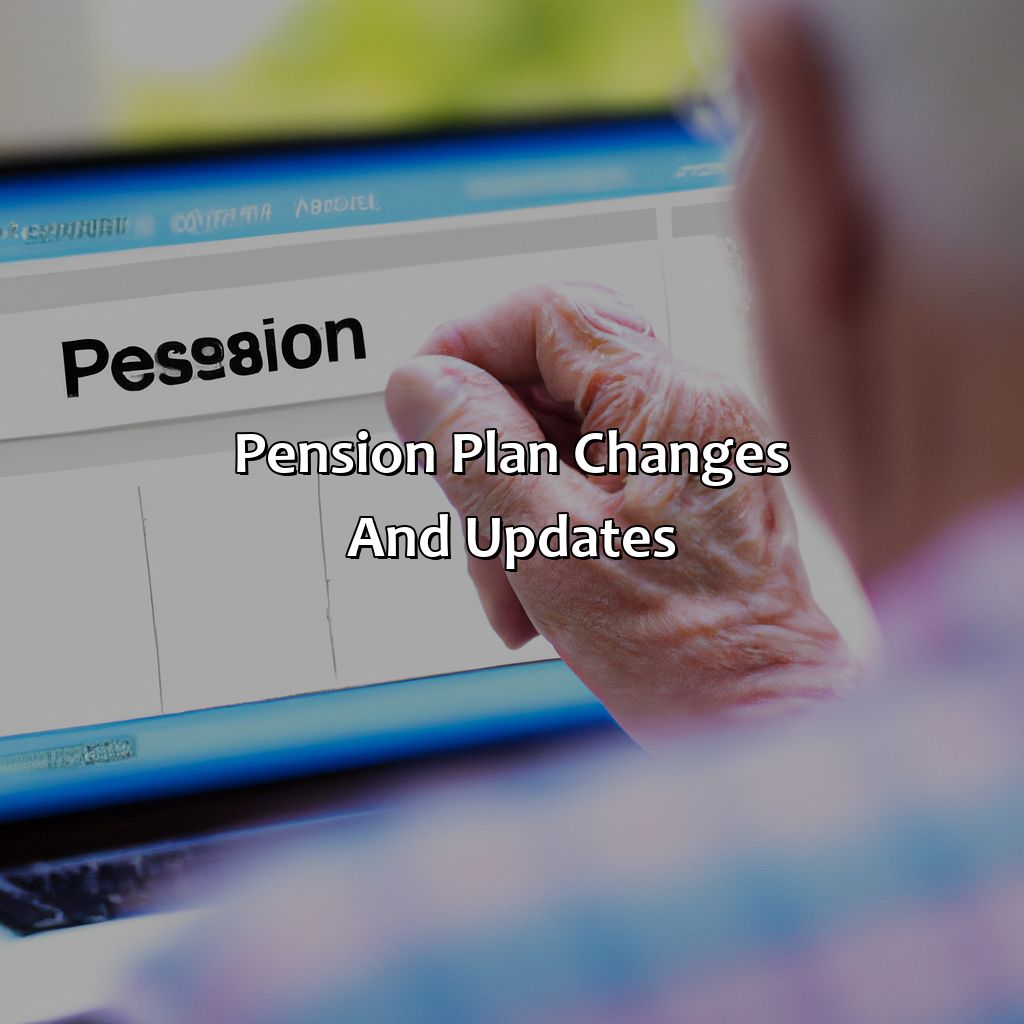
Image credits: retiregenz.com by Joel Woodhock
Some Facts About When Can I Get My Pension:
The age at which you can receive your pension varies by country and is typically between 60 and 70 years old. (Source: Investopedia)
In the United States, full retirement age for Social Security benefits ranges from 66 to 67 depending on your birth year. (Source: Social Security Administration)
You can start receiving reduced Social Security benefits as early as age 62, but your monthly payments will be permanently reduced compared to waiting until full retirement age. (Source: AARP)
In some countries, the minimum number of years of contributions to receive a pension can vary from 5 to 30 years. (Source: European Commission)
It is important to plan for retirement early through personal savings and investments, in addition to pension benefits. (Source: Forbes)
FAQs about When Can I Get My Pension?
When can I get my pension?
Generally, you can start receiving your pension benefits beginning at age 65. However, the age at which you can start receiving pension benefits depends on your employer’s pension plan rules.
Can I get my pension before age 65?
Yes, some pension plans allow for early retirement benefits. However, the amount you receive may be reduced if you start receiving benefits before reaching the plan’s normal retirement age.
What happens if I delay my pension past age 65?
If you delay receiving pension benefits past age 65, you may receive a higher monthly benefit amount. The exact percentage increase in your benefit amount varies depending on your employer’s pension plan rules.
What if I switch jobs before I am eligible for my pension?
If you switch jobs before you are eligible for your pension, you may be able to transfer the value of your pension plan to your new employer’s plan or to a personal retirement account.
How is my pension benefit amount calculated?
Your pension benefit amount is generally calculated based on your years of service and your salary at retirement. However, the specific formula used to calculate your benefit amount can vary depending on your employer’s pension plan rules.
What happens to my pension benefits if I pass away?
If you pass away before receiving your full pension benefits, your spouse or beneficiary may be entitled to receive a portion or all of your remaining benefits. The specific rules regarding the distribution of your pension benefits after you pass away depend on your employer’s pension plan rules.
 Checkout this IRS Loophole
Checkout this IRS Loophole 
